The views expressed in our content reflect individual perspectives and do not represent the authoritative views of the Baha'i Faith.
Baha’u’llah, the founder of the Baha’i Faith, left this physical world on May 29th, 1892. In every religion, the death of its founder marks a momentous event – so how do Baha’is observe Baha’u’llah’s ascension?
Essentially, Baha’is remember this mournful day each year by focusing on Baha’u’llah’s life and teachings, and by bearing witness to the belief that Baha’u’llah’s spirit did not die, but has been released from earthly limitations by ascending to a higher realm.
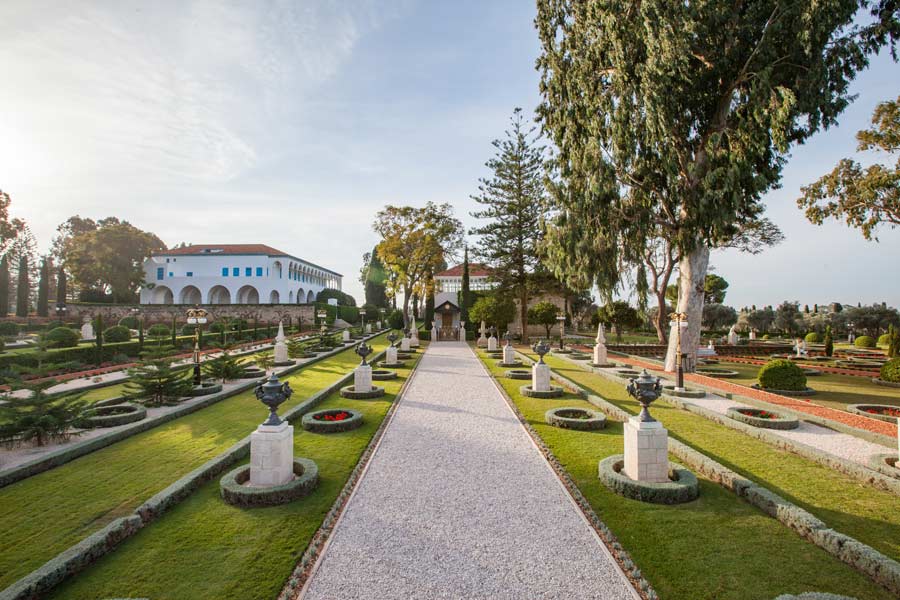
Baha’u’llah’s 75 years on this Earth had an astounding impact on humanity. As the founder of the newest global Faith, his three-quarters of a century here contained a remarkable number of both heroic and harrowing events.
Baha’u’llah lived through a sequence of immensely important roles: a Persian nobleman, a poet, a mystic, his country’s acknowledged and celebrated “Father of the Poor,” a prisoner of conscience, a torture victim, an exile, and above all, the Divine messenger who founded and promulgated the world’s second-most widespread religion, the Baha’i Faith:
The Revelation which, from time immemorial, hath been acclaimed as the Purpose and Promise of all the Prophets of God, and the most cherished Desire of His Messengers, hath now, by virtue of the pervasive Will of the Almighty and at His irresistible bidding, been revealed unto men. The advent of such a Revelation hath been heralded in all the sacred Scriptures. Behold how, notwithstanding such an announcement, mankind hath strayed from its path and shut out itself from its glory.
Say: O ye lovers of the One true God! Strive, that ye may truly recognize and know Him, and observe befittingly His precepts. – Baha’u’llah, Gleanings from the Writings of Baha’u’llah
The word Baha’i means “follower of Baha’u’llah” – and his astounding life has now become a model of spiritual and social progress for millions upon millions of people around the world. Those Baha’is, who come from every class, every nation, every racial group and every former Faith, have committed themselves to universal fellowship, oneness and love, following the ideals and principles Baha’u’llah taught.
During his lifetime, Baha’u’llah suffered enormously as an exile and a prisoner – but his new Faith drew the allegiance of many. So when Baha’u’llah passed from this life into the next in 1892, some observers and historians wondered if his new Faith would survive.
Surprising many, the Baha’i Faith not only survived after Baha’u’llah’s passing – it thrived, grew rapidly, and spread to every continent. More importantly, it maintained the wholeness and unity Baha’u’llah taught, without splitting up into the hostile sects and warring divisions that have frequently plagued new religions immediately after the passing of their founders.
Despite the repeated persecution, exile, imprisonment and torture Baha’u’llah suffered as a result of his progressive teachings, Baha’u’llah prevented those fractious divisions by establishing a written Covenant that passed the leadership of the Baha’i Faith to Abdu’l-Baha, his eldest son.
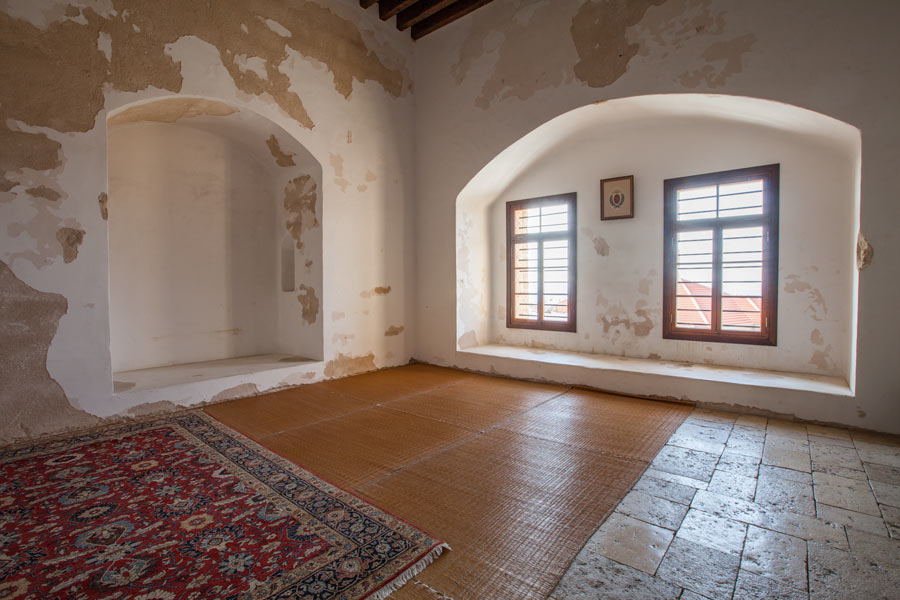
When Abdu’l-Baha passed away almost 30 years later in 1921, he named his grandson Shoghi Effendi as the Guardian of the Faith and the Center of that continuing Covenant. Today, after the passing of the Guardian in 1957, no appointed head of the Baha’i Faith remains – instead, leadership has transferred to the democratically-elected global administrative body called The Universal House of Justice. The Baha’i Covenant, the binding agreement that unites all faithful Baha’is and means that they turn to the appointed or elected head of the Faith for guidance and direction, was challenged but never compromised, and the Baha’is as a body of believers remain enthusiastically united around the world to this day.
The Baha’i teachings say that Baha’u’llah underwent this terrible treatment for the last four decades of his life, just as all the prophets of God have undergone persecution, as a sacrifice for all humanity and as an example of the power of unity. Abdu’l-Baha said that Baha’u’llah:
… bore all these ordeals and calamities in order that our hearts might become enkindled and radiant, our spirits be glorified, our faults become virtues, our ignorance be transformed into knowledge; in order that we might attain the real fruits of humanity and acquire heavenly graces; in order that, although pilgrims upon earth, we should travel the road of the heavenly Kingdom, and, although needy and poor, we might receive the treasures of eternal life. For this has He borne these difficulties and sorrows. – The Promulgation of Universal Peace
The Baha’i teachings emphasize the sanctity of the human rights of all people, the equality of the sexes, the oneness of all racial and ethnic groups and the promulgation of universal peace. Baha’is believe in the independent investigation of truth and the absolute freedom of everyone to worship as they wish. Those challenging ideas, along with many other progressive Baha’i teachings, caused the Persian and Ottoman clerics and governments to subject Baha’u’llah to four decades of cruel and unusual punishment, in a futile attempt to destroy his Faith. Baha’u’llah underwent terrible suffering, not for any crime, but for promulgating the peaceful principles of his new Faith. Despite the passing of Baha’u’llah, the Baha’i Faith continues to grow, develop and prosper in every corner of the planet.
So on this day, Baha’is around the world will gather at 3 a.m. to observe the anniversary of the passing of Baha’u’llah. In those thousands of solemn and prayerful occasions, filled with meditative contemplation and remembrance, Baha’is everywhere will reflect on the powerful teachings of this relatively new Faith and remember the extreme sacrifices it took to bring the Baha’i message of unity to humanity. Abdu’l-Baha, when his father Baha’u’llah passed away, wrote: “The Sun of Truth, the Most Great Light, hath set upon the horizon of the world to rise with deathless splendor over the Realm of the Limitless.


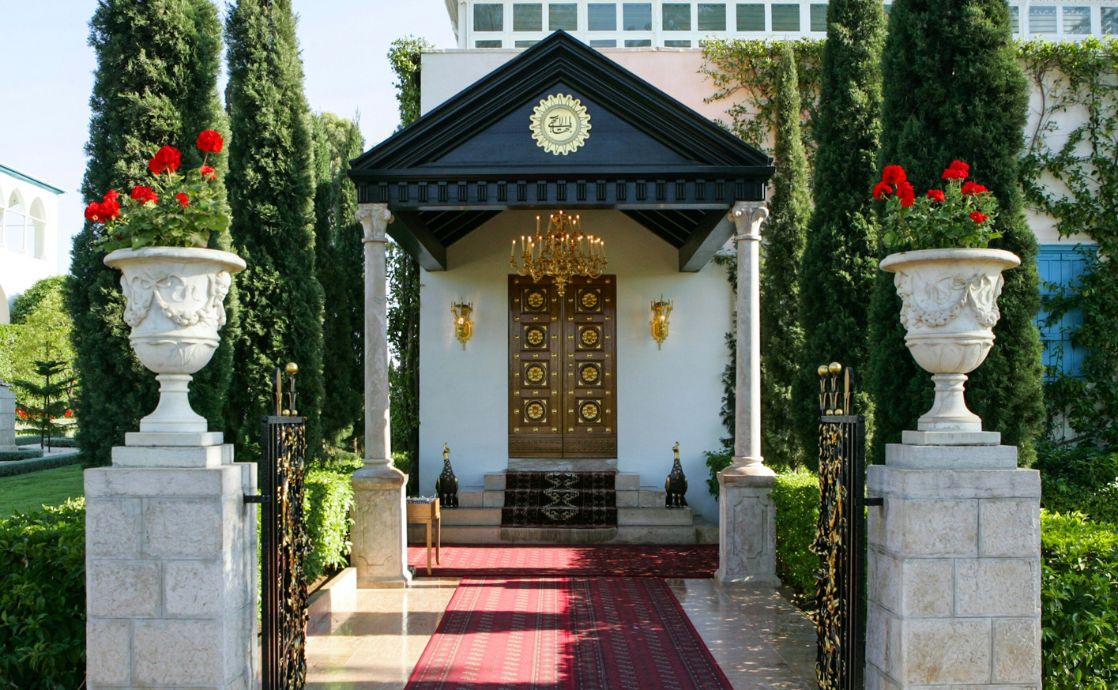


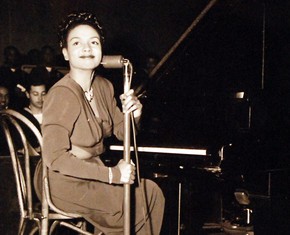







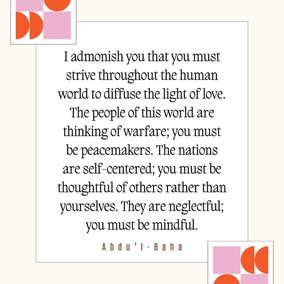
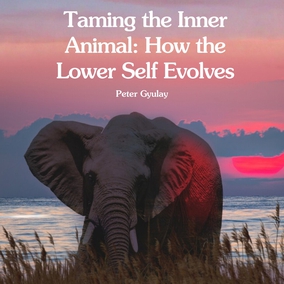

Comments
Sign in or create an account
Continue with Googleor